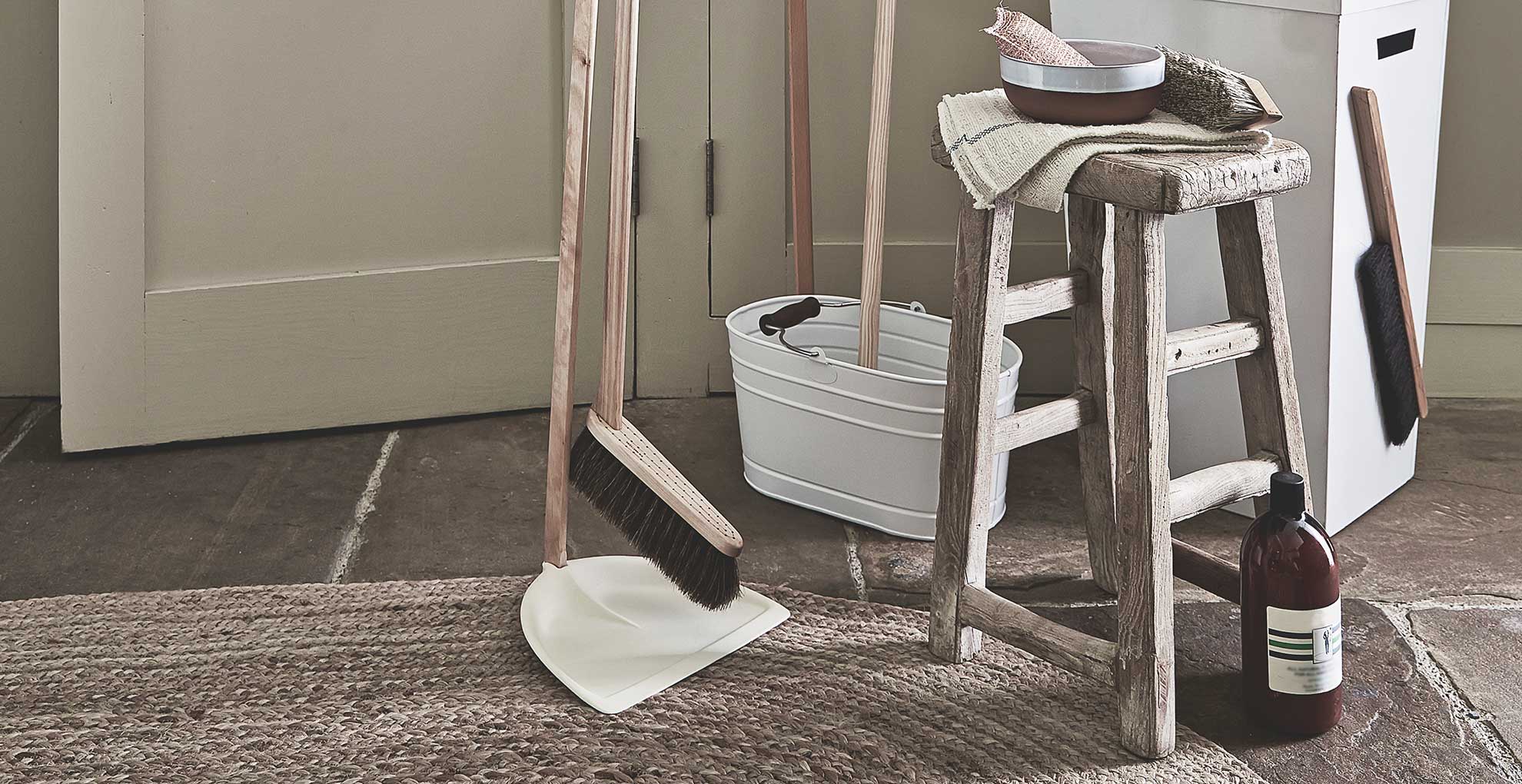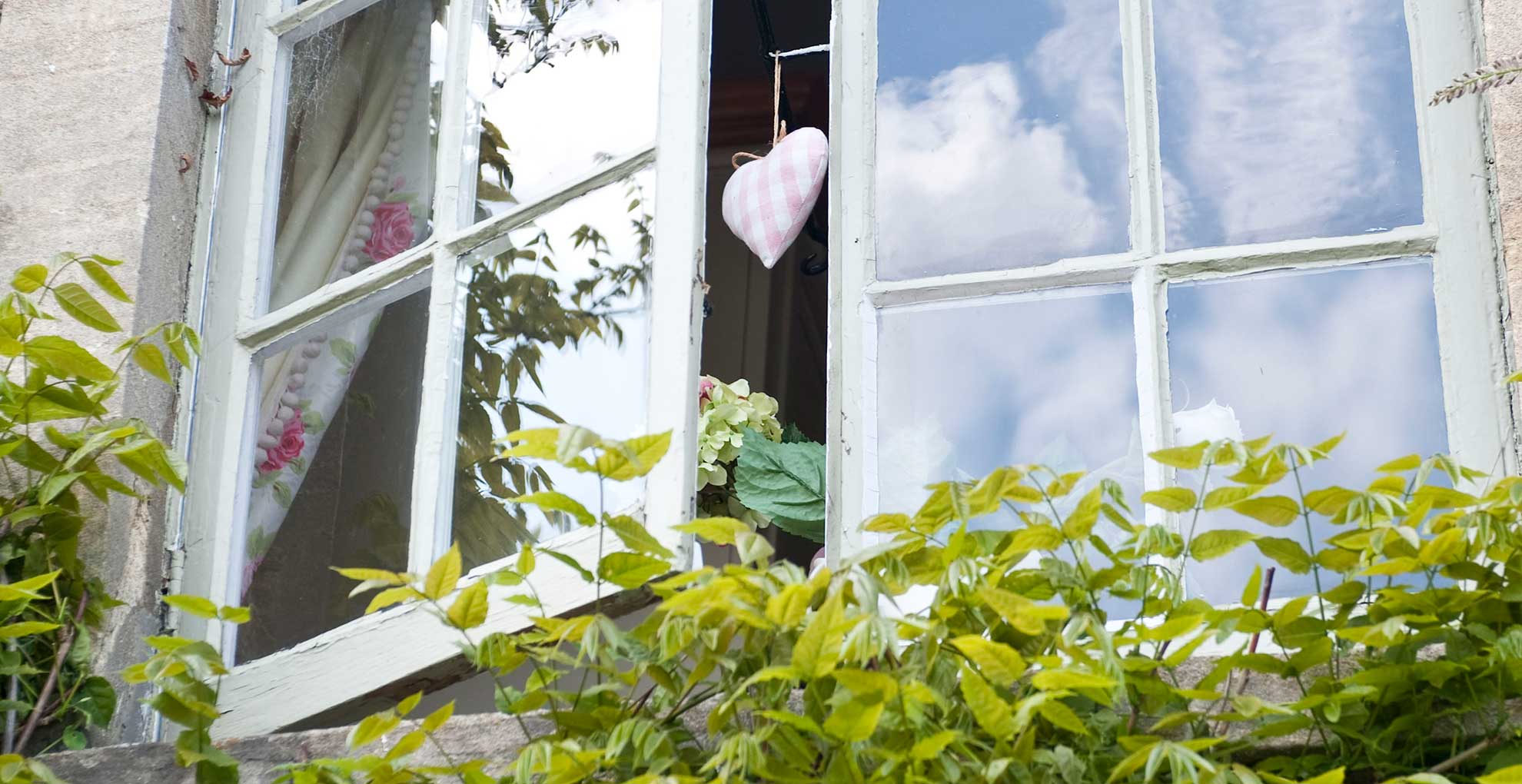Here's how to reduce dust in your home, according to a Dyson scientist
Feeling fed up with the dust levels in your home? You're not alone, we've called in the help of dust experts to find ways to reduce dust around a home to cut down on cleaning times


Keeping on top of dust levels around the house can feel overwhelming. I can't be alone in feeling like I'm constantly dusting to no avail. This sense of defeat led to me asking for advice, and who better to help than a dust expert at Dyson and a clean air specialist to suggest how to reduce dust in the home?
No matter how often you clean the house you may still find yourself questioning why there is still so much dust and it turns out that there are several resulting factors that can help to limit the amount of dust that accumulates in our homes.
Fortunately, the various methods are easy enough to implement to lessen the presence of dust in the home enabling the job of getting rid of dust in a home to be more efficient, easier and more time-effective. Here's what the experts say will help to reduce dust levels around a house.
How to reduce dust in a home: 8 expert tips
More than merely a visible coating of unsightly speckles on the sideboard or the TV screen, dust is a rather unpleasant concept to be surrounded by because it's made up of a mix of dirt, dead skin cells, mould spores, pet dander and more.
"Household dust is a complex matrix of components, including dead skin cells, hair, dust mites, dust mite faeces, bacteria, viruses, mould, small insects, and other fibres and particles," explains Dennis Mathews, a lead research scientist (Microbiology) at Dyson.
"Many of these particles are only visible under a microscope, making it possible for them to accumulate quickly without our awareness. Our skin is a prominent component of dust in our homes, with an average human shedding around two to three grams of skin per day, even more at night – equivalent to roughly the weight of a packet of crisps in a week."
Unpleasant reading but unfortunately, no matter how much you clean your house, dust is inevitable. Here's how the experts recommend limiting dust levels around the house...
Sign up to our free daily email for the latest royal and entertainment news, interesting opinion, expert advice on styling and beauty trends, and no-nonsense guides to the health and wellness questions you want answered.
1. Vacuum carpets, rugs and doormats reguarly

Keeping floors clean is an essential task to prevent any dust from being disturbed as you walk around the house and therefore being disturbed back into the air. How often should you vacuum?
Of course, it's important to vacuum and clean all flooring types, but carpets and rugs are particularly important when it comes to reducing dust because the fibres can trap huge quantities of falling airborne particles. Particularly those in high-traffic areas.
"Vacuuming frequently on areas that receive more footfall will help to stop dirt from building up and getting trodden into your floors," says Dennis. "Using a cordless vacuum is helpful for this, as the versatile format means you don’t have to spend time getting the machine out from a cupboard, plugging it in, moving it around and so on."
I recommend the Dyson V6 Animal Cordless Handheld Vacuum Cleaner – it's quite shocking just how much dust is there but not visible.
2. Take a slower approach to vacuuming

We've all zipped around with the vacuum to give the house a once over especially when trying to clean the living room fast before guests arrive, but the experts explain why taking a slower approach is the best way to reduce dust in the home.
"Vacuuming more slowly gives the machine more time to remove the dirt, especially the ground-in dirt and debris and hidden dust," advises Dennis. "Dust is made up of several components, including dust mites, allergens, bacteria and viruses that can sit deep in soft furnishing and carpets."
In addition to going slow, it also pays to go over the same spot to ensure it's entirely dust-free. "More passes over an area will also give the machine the best chance of cleaning well," says Dennis. "However, any more than two or three times gives minimal increase according to our research."

Dennis is a Research Scientist working in the microbiology laboratory at the Dyson research and development facilities in Malmesbury, England. He works alongside academic groups and Dyson engineers to provide guidance and support on various microbiological and antimicrobial aspects to teams across the business. From breeding and studying dust to airborne and waterborne bacteria, Dennis is involved in multiple areas of Dyson’s technology development.
3. Dust more efficiently and more frequently

No matter how often you dust it can feel like the dust is still there. Cleaning experts say the best way to reduce dust is to change the way you tackle dusting.
"When dusting use a damp mop or cloth so as not to stir up the dust into the air," says Lars Dunberger, technology development manager at air purifier specialists Blueair.
While using this expert cleaning hack is key, it's also important to remember hidden areas of potential buildups. Dust can accumulate on just about any surface in the home, from the top of doors and kitchen cabinets to windowsills and even door handles. It's important to cover all areas.
While it’s not everyone’s favourite task, dusting should be carried out at least once every two weeks, if not weekly, especially if you have pets in the home - as this helps to reduce mild sickness and allergies.

Lars Dunberger works as a technology development manager at Blueair. Lars has been working for Blueair for over 6 years, initially as a research and development engineer.
4. Invest in an air purifier
The best air purifiers are an easy way to improve the air quality in the home, removing dust is a huge part of that process.
Our homes are filled with airborne pollutants, dust, pollen, pet hair and more - and one way to reduce these different particles throughout the house is to invest in an air purifier. The purpose of an air purification system is to filter the air of dust and nasty allergens and bring a flow of fresh air back into your home.
"We even have an air purifier specifically designed to keep dust in check," says Lars. "Blueair’s DustMagnet™ technology is uniquely designed to attract airborne dust particles like a magnet before they settle on floors and surfaces."
"Thanks to a powerful airflow in combination with two positively charged pre-filters, airborne dust is captured and removed, resulting in less time spent dusting and vacuuming."
5. Open the windows

It might not be the most effective way to keep a house warm in winter, but opening the windows daily is an easy way to reduce dust buildup. As our experts have already explained dust mites can't survive in
As a result, Lars recommends the following: "On dry days open windows for about one hour per day to reduce humidity in the house."
6. Use a dehumidifier daily
We know that reducing humidity levels can help, therefore it makes sense that running one of the best dehumidifiers can prove invaluable in helping to reduce household dust.
"Air conditioning and dehumidifiers help as dust mites cannot survive in areas of low humidity," Lars explains. A dehumidifier works by removing moisture in the air, doing so with an extraction process which means it can also help to eliminate airborne elements of dust, that will be captured in the dehumidifier filter.
7. Clean and refresh filters
Make sure all the filters within your home are cleaned regularly or changed to ensure they are working at maximum efficiency. If a filter is dirty it is directly impacting the air quality of your home by not filtering out only dust, but bacteria and other nasty pathogens.
From AC units to vacuum cleaners even cleaning a dehumidifier, it's recommended to keep on top of cleaning all filters to ensure no trapped dust is being blown back into the space where you are trying to improve indoor air quality.
8. Wash bedding frequently

Increasing how often you wash your sheets and bedding is a quick and easy way to reduce dust levels from building up in another unexpected area.
You wouldn't think of the bed as a particularly dusty zone but when you think of what Dennis has explained about the amount of dead skin in dust it suddenly makes total sense that your bedding, mattress and pillows generate and hold a lot of dust.
"Washing bedding at a warm temperature once a week will help to reduce dust," says Lars.
So duvet covers and pillowcases should be washed once a week to prevent the build-up of skin cells and dust, but don't forget to include washing your mattress protector in your new washing regime, because that is what keeps your mattress clean. You should then aim to wash your pillows and deep clean your mattress at least once every 6 months.
What is the best way to repel dust?
"In general, dust particles are mechanically and/or electrostatically ‘stuck’ to surfaces. While it's common to clean dusty surfaces with a wet cloth, the most effective method for eliminating household dust, including dust mites and their droppings, is to vacuum them first," says Dennis. "Vacuum little and often, rather than just a weekly deep clean, like many of us have historically done."
To vacuum to repel dust more efficiently Dennis adds: "A vacuum needs to apply force to particles for a certain time to dislodge and entrain them into the machine. The force is supplied by the airflow from the machine, as well as the brush bar and cleaner head. The force can be increased by changing to higher suction settings, whereas the ‘time’ can be extended either by moving slower or by completing more passes over an area."
FAQ
Why does my house get dusty so quickly?
"Dust can be displaced by simple, everyday actions like sitting on a sofa or turning on air conditioning, becoming airborne before settling on surfaces," Dennis explains. "These surfaces include corners of walls and floors, skirting boards, the tops of photo frames and light fixtures, the backs of wardrobes, and window sills and shelving."
"Beyond being unsightly, dust can contain allergens that may trigger allergies. Therefore, reducing household dust is crucial for our well-being."
Reducing the dust in our homes is important for all households to maintain a better level of hygiene, but for those who suffer from allergies or breathing difficulties, the task of reducing dust is all the more important.

Tamara is a highly experienced homes and interiors journalist with a career spanning over 22 years. Now the Lifestyle Editor of womanandhome.com, she previously spent 18 years working with the style teams at Country Homes & Interiors and Ideal Home. With these award-winning interior teams, she gained a wealth of knowledge and honed her skills and passion for styling and writing about every aspect of lifestyle and interiors.
A true homes and interiors expert, Tamara has been an ambassador for leading interior brands on multiple occasions, including appearing on Matalan’s The Show and presenting at top interior trend forecasting events such as the Autumn Fair and Spring Fair.